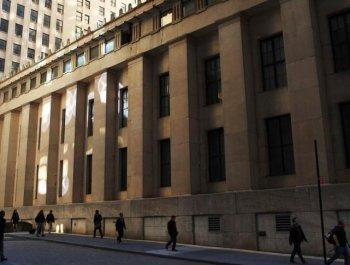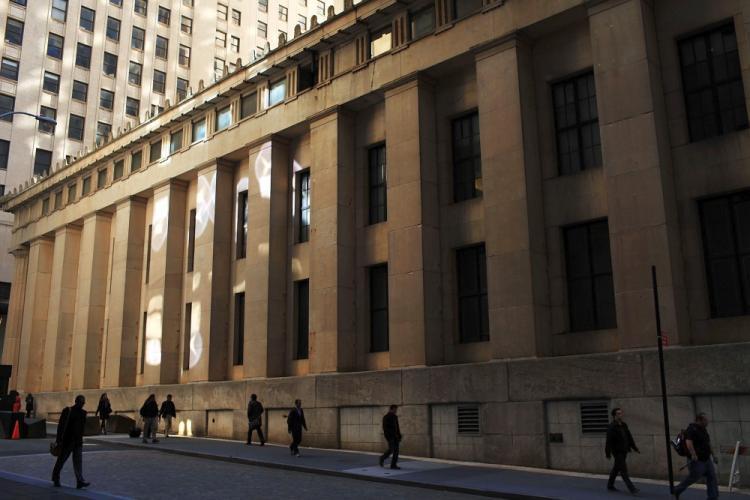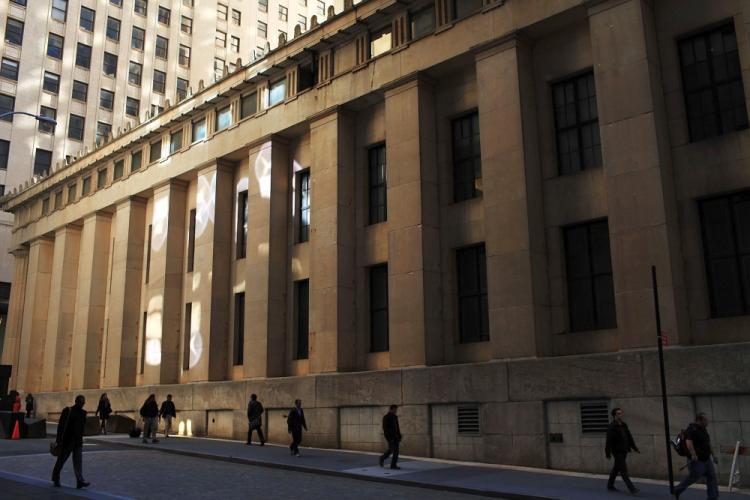SEC Expands Stock Market Oversight
The U.S. Securities and Exchange Commission has expanded the number of stocks subject to its circuit breakers rule.

People walk towards Wall Street in the financial district in New York City. The U.S. Securities and Exchange Commission has expanded the number of stocks subject to its circuit breakers rule. Spencer Platt/Getty Images
|Updated:





